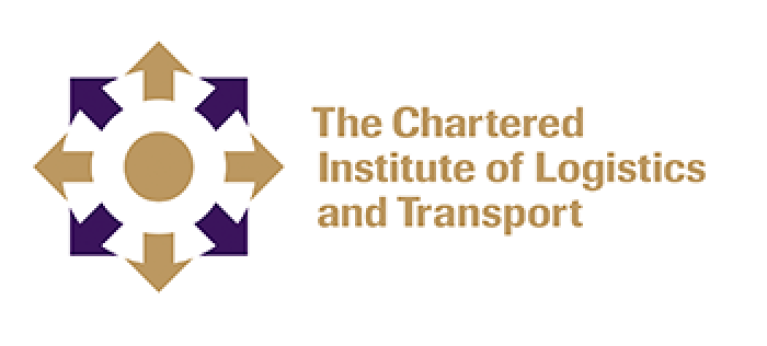Overview
Launch your career in global trade and transport, with a Master of Supply Chain Management from Victoria University.
This innovative program takes a holistic approach to hands-on industry practices, focusing on strategies that underpin the global supply chain.
Designed for professionals in the field of operations, procurement, warehousing, global trade and transport, the Master in Supply Chain Management develops your real-world experience through internships and industry visits.
During your study, you will have access to SAP-SCM and SAP-PP (production and planning) software, teaching you to plan, source and deliver goods in an optimised way.
On graduating with a Master of Supply Chain Management, you will have skills and expertise in complex and current supply-chain models, concepts and strategies, specialising in the following areas:
- global procurement and operations management
- green logistics and supply chain strategies in a global context.
The Graduate Certificate in Transport Systems provides a pathway to our masters course.
Fast-track your degree
If you have an Australian bachelor degree in supply chain management (or similar discipline), you may be eligible for an exemption of 48 credit points of study.
If you receive 48 credit points for previous study, you may be able to qualify with a masters in 1.5 years, enabling you to launch your professional supply-chain management career sooner.
Gain real-world experience
As part of your study, you will have the opportunity to put theory into practice, delivering simple supply-chain solutions and recommendations.
Drawing on your study to apply a managerial perspective, you will analyse and solve an authentic business problem, and address real issues faced in organisations.
This professional experience is invaluable when applying for jobs and stepping into a new, more-senior role.
Study in convenient 8-week blocks
Following the overwhelming success of the revolutionary VU Block Model with undergraduate students, we have rolled out the Block Model to our postgraduate courses.
This course is delivered in an eight-week mode, which means you study two units (subjects) at a time over eight weeks (or one unit at a time over eight weeks for part-time study), rather than juggling several units at once. And with its focused timetables and smaller, collaborative classes, VU’s Block Model gives you more time to connect with your peers, lecturers and industry partners, helping you build strong professional networks.
The VU Block Model has improved our student results and engagement and has won multiple international awards for innovation and excellence.
Course e-Brochure
Create a customised brochure in a few simple steps. Your brochure will include country-specific information.
Create an e-brochure
Careers in Supply Chain Management
Suppose you are working in operations, procurement, warehousing, global trade and transport. In that case, this program will enhance your skills and approaches to supply chain management and assist you in roles in international and domestic organisations either in direct SAP-ERP helped inventory-related fields, or in more widespread functional roles.
Graduate ready for various roles in supply chain and logistics, including:
- supply chain management
- logistics coordination
- global procurement
- sourcing/distribution management
- transport coordination
- warehouse supervision
- import/export and customs management.
Course structure
To attain the Master of Supply Chain Management, students will be required to complete 192 credit points consisting of:
- 48 credit points business core units
- 96 credit points professional core units
- 12 credit points BMO5501 Business Ethics and Sustainability; and,
- 12 credit points BMO7006 Applied Business Project (Capstone); and,
- 24 credit points elective units. Please check any pre-requisite requirements prior to enrolling.
Course structure and units
College Core Units
-
- Unit code
- BAO6504
- Credits
- 12
-
- Unit code
- BEO6000
- Credits
- 12
-
- Unit code
- BEO6600
- Credits
- 12
-
- Unit code
- BMO6506
- Credits
- 12
Professional Core Units
-
- Unit code
- BCO7000
- Credits
- 12
-
- Unit code
- BEO5305
- Credits
- 12
-
- Unit code
- BEO5307
- Credits
- 12
-
- Unit code
- BMO5574
- Credits
- 12
-
- Unit code
- BMO5579
- Credits
- 12
-
- Unit code
- BMO6508
- Credits
- 12
-
- Unit code
- BMO6511
- Credits
- 12
-
- Unit code
- BMO7007
- Credits
- 12
Core Units
-
- Unit code
- BMO5501
- Credits
- 12
-
- Unit code
- BMO7006
- Credits
- 12
24 credit points elective units
Learning outcomes
On successful completion of this course, students will be able to:
| 1. | Exemplify initiative and inspirational leadership in a contemporary Supply Chain work environment, acting consistently, ethically and socially responsible; | ||
| 2. | Critically analyse, reflect on and synthesise complex operations, supply chain and logistics concepts, strategies and theories; | ||
| 3. | Investigate established supply chain models and theories to emerging situations and challenges in contemporary dynamic situations; | ||
| 4. | Critically review the networks of businesses that collaborate to plan, source, make and deliver the products and services for global markets; | ||
| 5. | Deliberate on the operations and supply chain strategies with the specialist and non-specialist audiences including multi-disciplinary teams, diverse cultural communities and businesses, and other professional organisations; | ||
| 6. | Critically evaluate the full range of activities that constitute the supply chain management discipline: from global procurement and operations management, to logistics strategies, green procurement and ERP enabled supply chain systems: and, | ||
| 7. | Implement research as a capstone project to generate and evaluate complex ideas and concepts at abstract and practical levels. |
What's a unit?
A unit or 'subject' is the actual class you'll attend in the process of completing a course.
Most courses have a mixture of compulsory 'core' units that you need to take and optional elective units that you can choose to take based on your area of interest, expertise or experience.
Credits
Each unit is worth a set amount of study credits based on the amount of time you study. Generally, 1 credit is equal to 1 hour of study per week.
Admission & pathways
Meeting the minimum admission requirements does not guarantee you entry into this course. Some courses receive more applications than the number of places available. In this situation we will also assess your education, work and other relevant experience.
If you do not meet the minimum requirements you may be eligible for one of our special admission programs. We also encourage you to explore our study pathways to help you reach your goal.
Find out more about how to apply for our courses, and our commitment to admissions transparency.
Entry requirements
Completion of an Australian Bachelor degree (or equivalent) in any discipline
OR
Completion of an Australian Graduate Diploma (or equivalent) in a similar discipline
PLUS
IELTS (or equivalent): Overall score of 6.5 (with no band less than 6.0 in Listening, Reading, Writing and Speaking)
Find out if you meet the entry requirements, including English language and academic requirements.
Pathways from VU courses
There are many ways you can start your education journey at VU. Pathways offer an easy transition between courses at different levels, so that you can start with a certificate and progress right through to postgraduate study.
Find out more about pathways and credits.
Credit for skills and past study
Advanced standing: Applicants with an Australian Bachelor degree (or equivalent), or higher, in a similar discipline may be eligible for an exemption of 48 credit points of study.
Use our credit calculator to find out how much credit you could get towards your course, based on your previous study.
If you have completed study with another university or institution and believe you are eligible to receive credit for skills and past study, you can apply for advanced standing.
Applications for advanced standing can be made after a discussion with your course chair or academic adviser.
How to apply
We are currently accepting international applications, and we welcome you to apply for this course.
Click 'apply' to begin, and we will guide you through the application process.
If you have questions, please get in touch:
- Phone: +61 3 9199 1164
- Email: [email protected]
- Online: enquiry form
Information and fees listed above are for non-resident students. Fees are accurate at the time of viewing and will be subject to annual increases. Some courses require students to purchase equipment or clothing that they will need in the course. These equipment or clothing costs are not included in the course fees listed above – check your Letter of Offer for an estimate on non-tuition-fee-related expenses.
VU takes care to ensure the accuracy of this course information, but reserves the right to change or withdraw courses offered at any time. Please check that course information is current with the Student Contact Centre.



